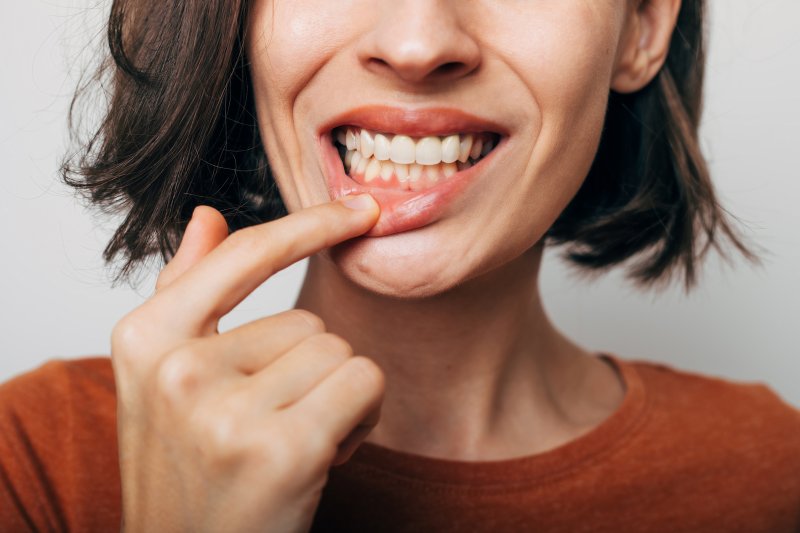
Gum disease is a distressingly common dental health problem. About half of all American adults deal with this oral affliction, which is especially disappointing because gum disease is almost always completely preventable. Researchers have found that, in addition to brushing, flossing, and using antibacterial mouthwash every day, taking daily probiotic supplements can reduce gum disease and improve a person’s oral health. Here’s what makes these helpful little microorganisms such a welcome addition to your oral health routine.
How Can Poor Oral Health Affect My Life?
Poor oral health leads to severe consequences for all aspects of your life. In particular, untreated gum disease can cause irreversible tissue damage, bone loss in the jaw, and tooth loss. It can also lead to dangerous secondary infections like pneumonia and sepsis and put one at greater risk of developing conditions like cardiovascular disease, diabetes, dementia, and Alzheimer’s disease.
How Can Probiotics Help Preserve My Oral Health?
Using probiotics every day may have considerable benefits for your oral and overall health. In one trial studying the effects of daily probiotic use on the gum health of adults with gingivitis, researchers found that subjects taking a probiotic supplement had lower rates of gingivitis than the control population after eight weeks.
What Are Some Other Benefits of Probiotics?
In addition to being a great way to supplement an excellent daily oral hygiene routine as a crucial part of maintaining oral health, probiotics carry a variety of benefits to other aspects of your health. They can help a person manage a healthy weight or improve digestion, and in some cases, they can help to reduce the symptoms of lactose intolerance. These are significant quality-of-life benefits that help many people live happier lives.
Preserving your oral health is a crucial part of maintaining your overall well-being. It helps you keep up a pleasant appearance, prevent bad breath, and may even decrease your likelihood of developing cognitive decline. Your dentist or doctor may be able to recommend a specific probiotic supplement for you.
About the Author
Dr. Robert A. Whitmore earned his dental doctorate at Baylor School of Dentistry and continues to keep his clinical skills sharp by regularly completing continuing education courses. He serves as an active board member with Dental Health Arlington, a non-profit that delivers preventive and pain-relieving dental services to low-income residents. His office in Arlington, TX offers general, restorative, cosmetic, and emergency dentistry. For more information on how probiotics can help to improve your oral health, contact his office online or dial (817) 468-1212.
